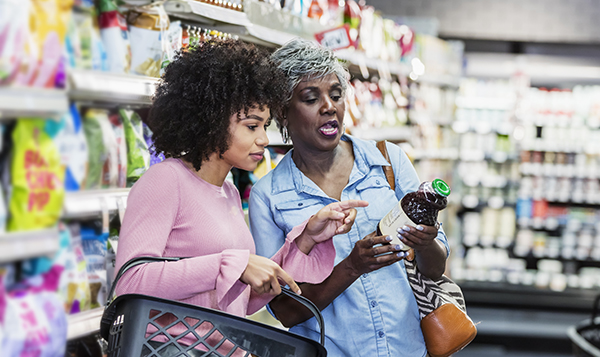Many specialty food consumers are actively seeking out diverse-owned brands, and retailers are helping these shoppers identify BIPOC- (Black, Indigenous and people of color) owned businesses, according to the SFA State of the Specialty Food Industry 2022-2023 report.
The report cited SFA research from its 2021-2022 edition of Today’s Specialty Food Consumer report released last summer, which found that 17 percent of specialty food consumers said they buy specialty food to support diverse suppliers, which include not only BIPOC-owned brands, but also those owned by women, veterans, people who identify as LGBTQ+ and disabled individuals.
In addition, 22 percent of specialty food consumers, and 19 percent of all adults, said they prefer to shop in stores that feature products from diverse-owned businesses. Gen Z consumers in particular are interested in supporting these brands, the Today’s Specialty Food Consumer report found.
The State of the Specialty Food Industry 2022 report also cited research from McKinsey showing that 45 percent of Americans believe that retailers “should actively support Black-owned businesses and brands.”
A growing number of incubators, brokers and other organizations have also emerged that specialize in diverse-owned brands, including BIPOC-owned CPG companies, the recently-release report found.
Retailers have taken note of these interests and are taking steps to help nurture diverse-owned brands and to help consumers find them on their shelves.
Online grocery retailer FreshDirect, for example, this year highlighted Black-owned brands during Black History Month in February, as part of the company’s overall effort to support small, emerging and local brands, including BIPOC-owned businesses. Among the brands it featured were Nafis, Zach & Zoë Sweet Bee Farm, Hillside Harvest, McBride Sisters, and Maison Noir.
In May, Target Corp. said it had increased its investments in Black-owned products, businesses, and suppliers by about 50 percent since it launched its Racial Equity and Change commitment in 2020. The commitment included a pledge to spend more than $2 billion with Black-owned businesses by 2025. The retailer now offers more than 100 Black-owned brands.
Other specialty food retailers committed to BIPOC-owned brands include Pop Up Grocer, which seeks to showcase diverse-owned brands among its curated selection of CPG products in each of the markets where it opens its temporary locations.
Local delivery company DoorDash in March launched the DoorDash Accelerator for Local Goods, which offers resources and education for CPG makers owned by women, transgender individuals, immigrants, and people of color. DoorDash offers grocery products through its DashMart retail brand.
This year’s Summer Fancy Food Show in New York City also highlighted BIPOC-owned brands through a new partnership with (included), a membership collective of CPG companies led and mostly owned by Black, Indigenous, Latinx, Asian, and other founders and leaders of color. The show featured an (included) pavilion where 10 (included) companies exhibited: Mighty Gum, Good Food For Good, Bon AppéSweet, AYO Foods, Green Sahara, Sweet Logic, Waju, Wild Wonder, Hrbvor, and Mocktail Club.
Related: Meijer Recognized as Veteran-Friendly Employer; Q&A With Queer Food Foundation's Lenart.

